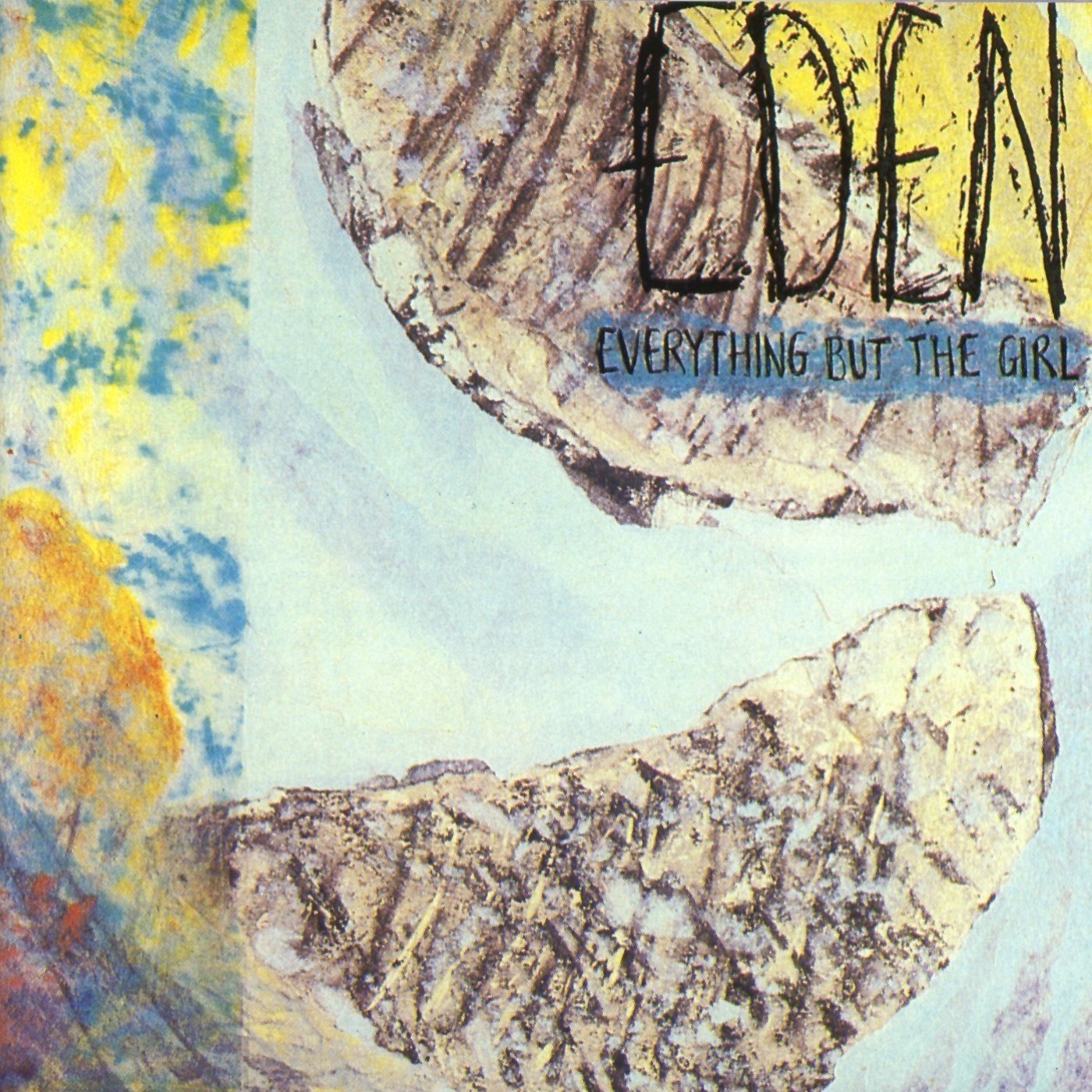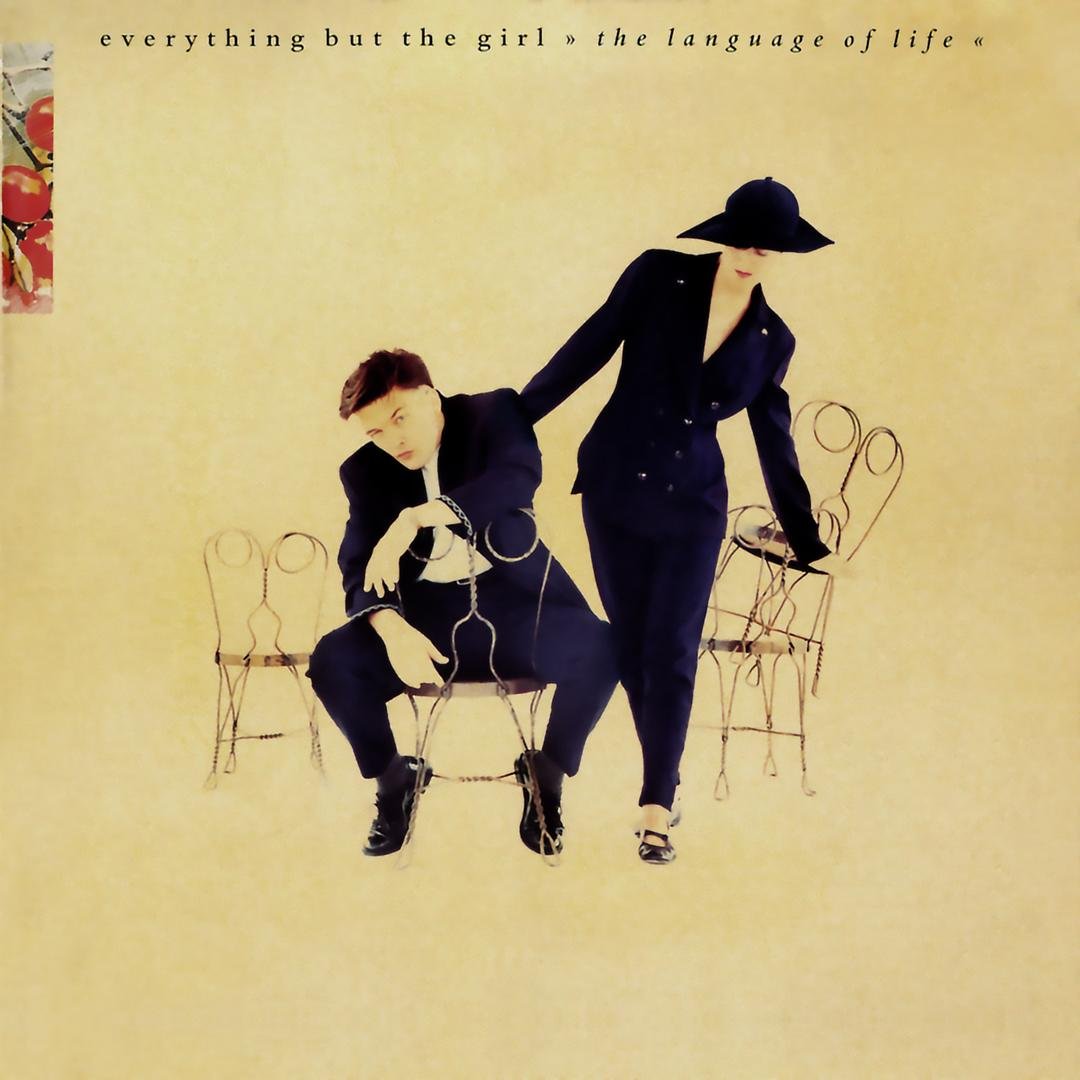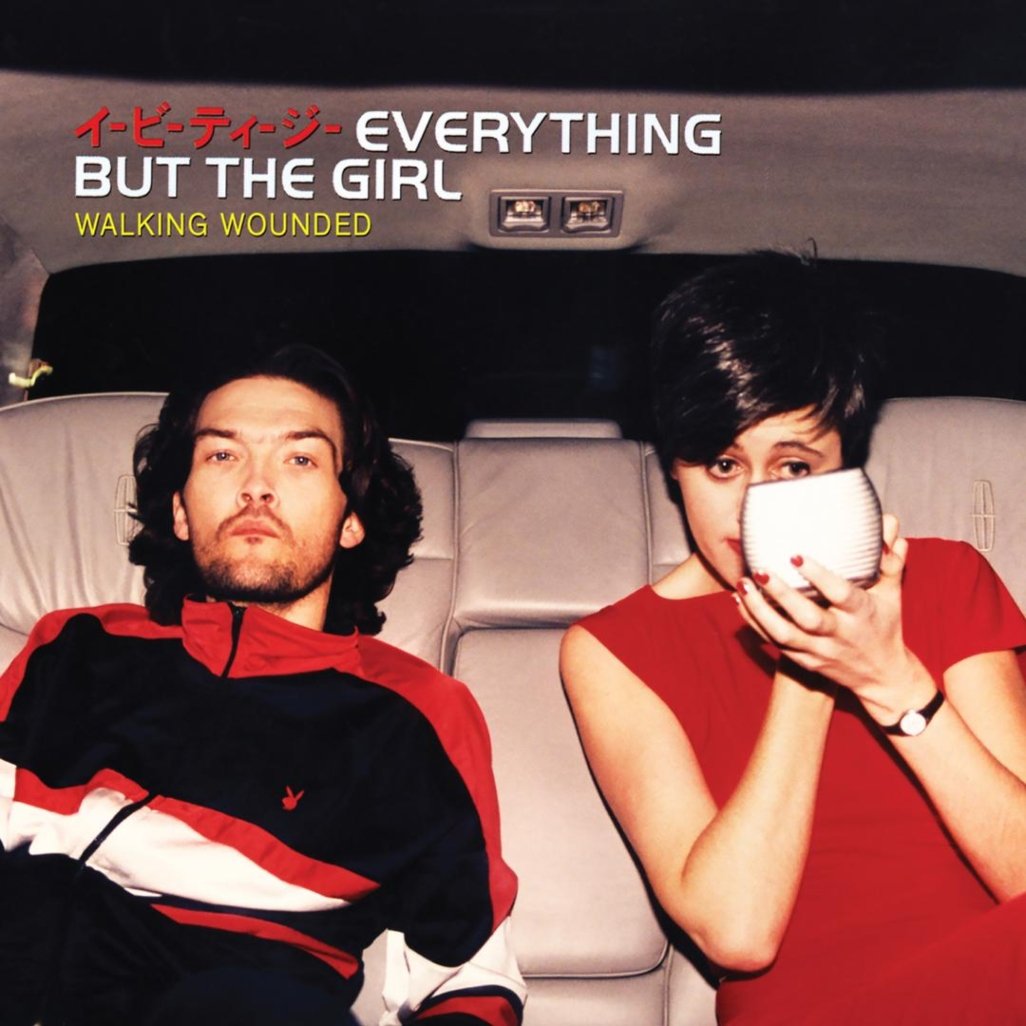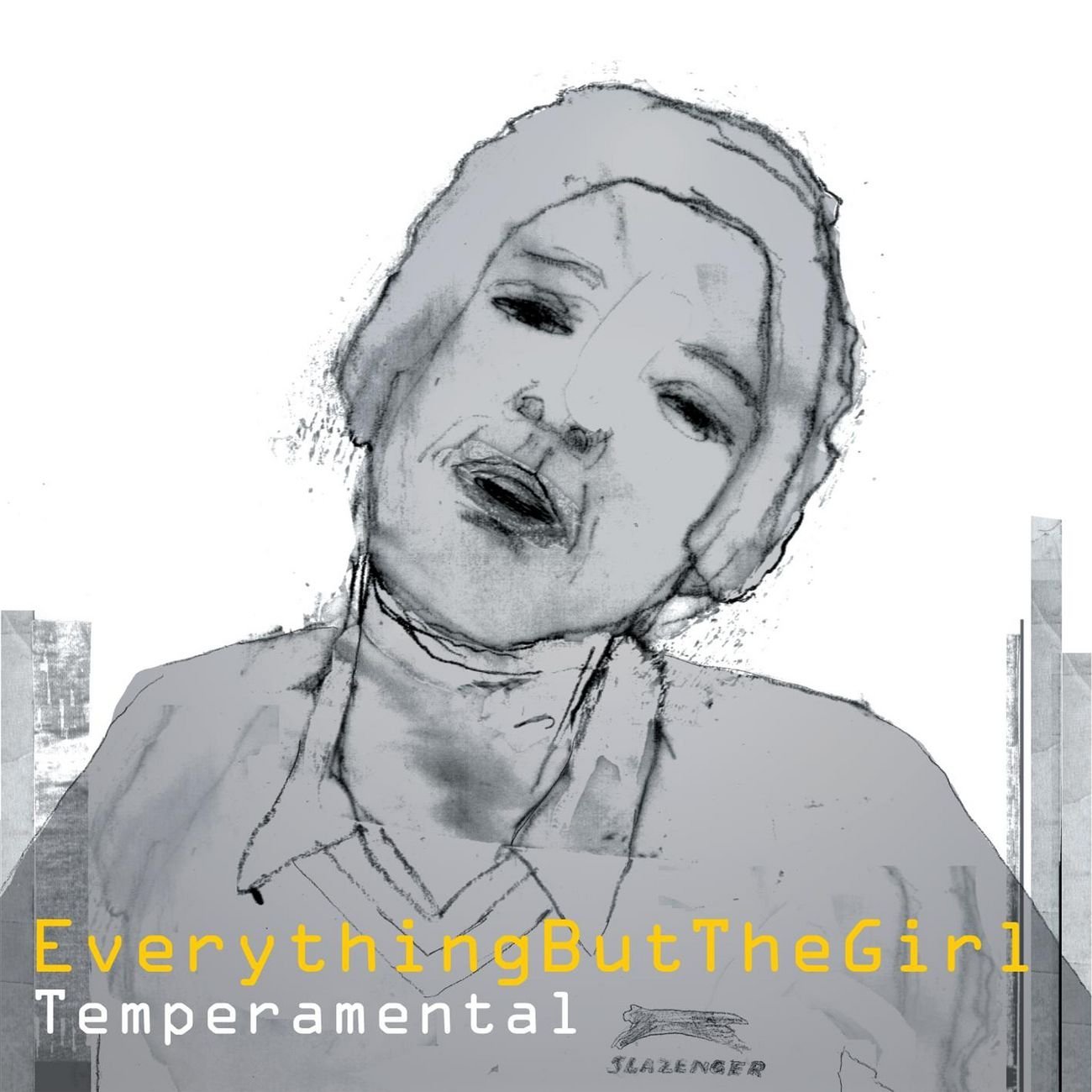Happy 30th Anniversary to Everything But The Girl’s Amplified Heart, originally released June 13, 1994.
When Albumism’s editor-in-chief asked me if I wanted to write a 30th anniversary tribute for UK duo Everything But The Girl’s iconic 1994 album Amplified Heart, my immediate reaction was an overjoyed “I. Love. Them. Count me in!”
Then, a few minutes later…I panicked.
I freaked out because there are plenty of albums that I love, but I care about Amplified Heart, because in an odd way I’ve always felt that it’s cared about me, too.
For nearly half of my time on this planet, it’s been in and out of my life, yet, it has always remained a trusted compadre. It’s helped salve every heartache I’ve gone through. It’s soothed my senses when I’ve spun out and needed to come back to Earth. And it’s always made good on its promise to make me feel something whenever I felt empty.
I’m not alone in my appreciation for this recorded masterpiece. It seems like whenever I mention Amplified Heart, wherever I am, someone will always have a similar visceral, loving reaction to it. They’ll profess that the album has been like an old friend, a commiserator, and a companion in their life. It’s an album that moves those who connect with it, as evidenced by the quotes I've recently culled from family, friends and fans that appear at the end of this article.
To understand why the songs on Amplified Heart make such an emotional impact on listeners like myself, you have to know the professional challenges and personal upheavals that EBTG’s Tracey Thorn and Ben Watt endured before making the album. These events absolutely affected its creation.
In the decade leading up to Amplified Heart’s release in 1994, Everything But The Girl had recorded six very different studio LPs of original material (seven if you count their first U.S. release Everything But The Girl which repackaged some of their 1984 UK debut Eden, plus six additional tracks).
Being part of the UK’s sonically experimental “anti-rock” post-punk movement in the early ‘80s, Thorn and Watt naturally experimented with a variety of soundscapes, instruments and musical genres on these albums—all wrapped in a slight pop sensibility. Eden (which sold over half a million copies) incorporated jazz and bossa nova grooves. Then they moved on to jangly guitar-pop (1985’s Love Not Money), sixties-style orchestral arrangements (1986’s Baby, The Stars Shine Bright), and even a little Jam & Lewis inspiration (1988’s Idlewild).
While three of those albums cracked the UK Top 20 (Love Not Money reached #10), and their 1988 cover of Rod Stewart’s hit “I Don’t Want to Talk About It” became a UK Top 5 single, their music wasn’t really making a big commercial impact in the U.S., where the exceedingly flashy world of ‘80s mainstream pop was mainly driven by MTV’s music video rotation every hour of every day. Everything But The Girl never aspired to that level of success, though. As Watt said in a 2014 Songfacts interview, “I have never made music aimed at the charts.”
But, towards the end of the ‘80s, their record labels on both sides of the Atlantic wanted EBTG aiming for the charts. They wanted hits, especially in the lucrative U.S. market. So, for the duo’s first album of the ‘90s, they tried something different, spending six weeks in Los Angeles (and a good chunk of money) recording the lushly-produced The Language of Life (1990) with notable soul and jazz producer Tommy LiPuma at the helm and the best session players on speed dial.
Watch the Official Videos:
The sophisticated jazz-pop effort hit the Top 10 in the UK, spawned an adult contemporary radio hit in the U.S. with “Driving” (all these years later it’s still beauty to the ears), and sold over half a million copies worldwide. Given its “slick” sound, though, The Language of Life may have opened Everything But The Girl up to a new (albeit older) U.S. audience for a moment, but it also shed some of their core UK and European fans that were starting to move on.
With pressure from their labels to be more like chart-toppers Sade or Simply Red, Thorn and Watt started to question the music they were making, “We had lost the ability to make our own decisions and stick to them,” Thorn recalled in her 2013 memoir Bedsit Disco Queen: How I Grew Up and Tried To Be a Pop Star, also noting that she was losing touch with her ability to write songs like she used to, “Something was missing…the feeling that I was expressing what I intended to express, and that I had an audience with whom I was in sync.” Thorn and Watt had come to a point where they lost their way a bit and were running out of inspiration, “You run a little bit out of ideas,” Thorn confided in a 2018 Guardian interview, “I think we would both admit we weren’t at our most creatively prolific.”
So, when their keyboard-heavy and self-produced Worldwide was released in 1991, the album arrived to basically no response at all. In her book, Thorn says she felt the new effort was definitely overlooked (“in many ways … absolutely invisible”), saying it wasn’t reviewed by any major publications because it was “considered worthy of no one’s attention.” She further characterized Worldwide as “a bit rubbish.”
After almost a decade together making music, Everything But The Girl’s inevitable mid-career creative and commercial lull had officially arrived.
Realizing they had veered off course from where they started, in 1992 Thorn and Watt stripped down their sound for their 4-song Covers EP where they recorded acoustic versions of hits by Cyndi Lauper, Bruce Springsteen and Elvis Costello. Another one of the EP’s tracks, “Love Is Strange” by blues duo Mickey & Sylvia, got them back on the radio in the UK, so things were starting to move again. Covers was eventually expanded into Acoustic, a full LP for North America with an additional Tom Waits cover, some acoustic versions of their own songs and a few live tracks added.
While Acoustic kept their career in motion, Thorn and Watt were still at a creative impasse that grew larger as they entered a more content and domestic period of their personal life together. That’s hardly the environment for songwriters to flourish and challenge themselves. “We were at the lowest point of our entire career,” Thorn remembers in her book, “we were running out of steam.”
Now, here’s where the personal upheavals really kicked in for the professionally-paired and romantically-linked duo. Things got very dark on the journey that ultimately led them to birth Amplified Heart.
In the summer of 1992, they had planned to open for Elton John in Portugal and then tour the U.S. as an acoustic duo. Instead, Watt was rushed to a London hospital complaining of chest pains. In the months prior, he had been back and forth to his doctors because he hadn’t been feeling well. He was diagnosed with Churg-Strauss syndrome, a rare life-threatening autoimmune disease that attacked his bowels.
Suddenly, the couple were thrown into the fight of their lives as Watt was confined to a hospital bed. The disease ravaged his body and kept him in and out of intensive care for weeks. He endured five life-saving operations, was pushed to the edge of death a handful of times, and lost 50 lbs along with 85% of his small intestine.
Watt spent long, painful days and sleepless nights in the hospital unable to move much, which left a lot of time for him to reevaluate and ruminate on his life. “I was like an enormous tasking computer,” he wrote in his 1996 memoir Patient: The True Story of a Rare Illness, recalling the seemingly endless hours of “sifting through its millions of data deposit boxes…finding, replacing, paginating memories.”
Thorn was at his side through it all. And, like any good songwriter, she kept a diary during the time. After nine weeks, Watt was finally released from the hospital, but all the surgeries, setbacks and sedations left him extremely frail for months when he was at home. During this time, the pair weren’t sure if they would record again.
Of course, you can imagine how this sudden shift in their relationship from docile domesticity to a frightening patient/caretaker dynamic would shake the foundations of their (or anyone’s) romantic partnership. The trauma battered them both. “I couldn’t begin to think who we were becoming or if we were the same anymore,” Watt wrote in his book about the ordeal.
Even though they were living together during the long months of Watt’s recuperation, the battle to bring him back to good health had isolated them both. “In many ways, living with a depressed and traumatised convalescent is a far more difficult and lonely experience,” Thorn revealed in her memoir, “life shrank a bit, became confined to quarters. I became protective of him, ever anxious, a little fretful. It was like a foretaste of old age.”
They endured and, thankfully, Watt healed. So, when it came time to sketch songs and ideas for their next album, they obviously had a lot to write about. “Having fully unlocked the pent-up emotions of the last year, we had each written a flood of songs, which came in a rush like tears held back after a sudden shock,” Thorn wrote in Bedsit Disco Queen about that time period. “They were raw lyrics, uncensored outpourings from the insides of both our confused heads. Like in the old days, we were making a record again because we NEEDED to.”
Enjoying this article? Click/tap on the album covers to explore more about Everything But The Girl:
Finally, after all they had been through, Thorn and Watt had a reason to write from the heart again, and amplify it for the world to hear.
What emerged was an album of songs definitely hued by their harrowing experience. It’s full of first-person, narrative revelations exploring love (“Troubled Mind”), commitment (“We Walk The Same Line”), isolation (“Get Me”), despondence (“Rollercoaster”), family (“25th December”), and confusion (“I Don’t Understand Anything”).
It’s a somber album, but not a sad one; incorporating a stripped-down ‘70s folk vibe with their signature understated vocals (from both Thorn and Watt), acoustic guitars and wood instruments. On some songs, all of that is backed by electronic loops of guitars and drums, plus emotional string arrangements and a little jazz and Latin flare here and there. It’s absolutely gorgeous.
From the first lyric line in the album’s opener “Rollercoaster” (“I still haven’t gotten over it even now / I want to spend huge amounts of time on my own”), it’s clear from its musings about insecurity within the confines of a romantic relationship that what you’re about to hear is going to be a confessional and personal collection of songs.
But, they’re not songs that are “on-the-nose” about what they both went through in the previous year. In a 1994 Los Angeles Times interview, Ben explained why he had no desire to do that, admitting, “If I was to articulate the emotions stirred up by the whole experience, I had to make them accessible in a more general form that would deal with the uncertainties and vulnerabilities we all feel.”
Perhaps this is why Amplified Heart is so emotionally connective to so many people, like me. As a listener, you can feel the groundswell of emotion and experience lying behind each track. It invites you to sit close to both narrators as they open themselves up. And the beauty of the album is that you don’t need to know Thorn and Watt’s history in order for these songs to reverberate within you. For years, I never knew about Watt’s illness, yet the album still latched on to me and never let go.
With Amplified Heart, Everything But The Girl finally let us “in” a bit for a look at their life together. For most of their career, they kept a cool distance from audiences and the press when it came to talking about their relationship, leaving some to wonder if they were really a couple or not. On Amplified Heart, they confirmed it for us, opening the windows, shining a light on their union, and showing us a little of what they had been through.
So many of the songs deal with candid, bruising emotions that make me wonder what it was like for them to reveal these to each other for the first time. The one song on the album that always puts a lump in my throat is the haunting “I Don’t Understand Anything.” When its strings slowly rise to accompany Thorn’s rounded, autumnal vocal delivery of “People say that we’re so close / How can there be something that I don’t know / Oh but even though I share your bed / Baby, I don't get inside your head,” I’m always fighting back tears at that moment because of what the strings and her lyrics are basically saying: We sleep next to each other; we make love with each other, yet I still feel like an outsider when I’m with you. After almost 30 years of listening to this song, I’m still in awe of how heartbreaking the lyrics are.
Oddly enough, the most hopeful moment on Amplified Heart is found in “We Walk The Same Line,” which is the one song on the album where they most closely reference Watt’s two-and-a-half month hospital stay (“And I don't need reminding / How loud the phone can ring / When you're waiting for news / And that big old moon / Lights every corner of the room / Your back aches from lying / And your head aches from crying.”)
Sonically, the song is reminiscent of a late seventies-era Fleetwood Mac creation (personally, I hear a little bit of “Sara”), but instead of diving down, lyrically, to explore the depths of the hell Watt went through and the emotional toll it took on them both, the song celebrates a continuing commitment to love, no matter the obstacles (“So if you lose your faith babe / You can have mine / And if you're lost, I'm right behind / Cause we walk the same line.”) On the album, it’s the one moment when the sun peeks through the clouds to let you know everything’s going to be OK.
Although a beautiful collection of songs, Amplified Heart didn’t make a big impact when it was released in June of 1994. The promotional push for the album was minimal given that the duo was close to being axed from Atlantic’s roster. Yet, some at the label saw potential in the album’s melancholy but danceable second single “Missing” and decided to commission remixes of it to service to clubs as a way to build buzz and promote the single on the charts and the radio.
The response to those remixes was minimal as well, so New York house DJ/remixer Todd Terry was hired (for much less than his usual rate) to remix the single again, but this time in a more house music-inspired direction. At the time, house music was big in the UK and Europe.
But, even after the Terry remix was released, the single still wasn’t moving much, until one of the A&R guys in Atlantic’s dance department, Johnny “D” De Mairo (who was responsible for getting Terry to remix the song), decided to keep pushing out the Terry remix to clubs.
At this point, almost a year after Amplified Heart was released, Atlantic Records and Everything But The Girl thought the album’s promo cycle had finished. It was also around this time that their UK label decided to drop the duo from their roster, “they decided in their wisdom that our career was over, and—not entirely against our will, it must be said—let us go,” Thorn recalled in her memoir.
When I spoke with De Mairo on the phone during my research for this article, he told me why he spent months working the remix of the single, “I really felt it was a hit…I serviced the record five times between April and August [of 1995]…I just kept putting it out, re-editing Todd’s version, sending it out with different colored labels…I just would not let go of the record.”
His tenacity of keeping the remix in front of club DJs eventually paid off. The Todd Terry remix of “Missing” finally became a hit in dance clubs around the world (the dance floor always conveys the truth of what’s good, doesn’t it?), and the song took off on singles charts, internationally.
“Missing” rose to #3 in the UK, and hit #1 in Canada, Germany and Italy. In the U.S., after a 28-week climb, it peaked at #2 on the Billboard Hot 100 Singles chart in February of 1996 (thwarted from the top spot by Mariah Carey & Boyz II Men’s “One Sweet Day”) and became the first song to spend an entire year (uninterrupted) on that chart.
Everything But The Girl finally had a huge hit on their hands. Eventually, the single sold three million copies around the globe and Amplified Heart reached gold certification in the U.S. The sudden mainstream success got Everything But The Girl re-signed to Atlantic Records for two more albums.
When you listen to Amplified Heart all these years later, you can hear how it connects EBTG’s old Eden days with their dance floor-inspired electronic drum-and-bass future of 1996’s Walking Wounded (their best-selling album) and its 1999 follow-up, Temperamental.
But while Eden, Walking Wounded, and Temperamental sonically reflect the time periods in which they were recorded, the sound of Amplified Heart still remains timeless. Thirty years has not aged the album one second. It still stands on its own as a trendless, cathartic listening experience for the most emotionally aware of listeners.
I’ve always wondered if the creation of the album was therapy for Thorn and Watt after all they had gone through together. Not that it’s anyone’s business, of course. But, I can’t help but be curious if making the album helped heal them. That’s what I’d ask them if I ever got the chance.
“We’ve always been proud of Amplified Heart,” Watt wrote on the duo’s website, “It is both close to the bone—understandable, given its background—but also gentle in its touch, and shot through with resilience.” Thorn added, “I think it’s a real rebirth record.”
Family, Friends & Fans Share Their Love for Amplified Heart
“Amplified Heart is the album of my life. It makes me feel human and vulnerable.”
- Andrea Greca Krueger (Curitiba, Brazil)
“Their music has always been the soundtrack of my life…Amplified Heart sealed it.”
- Juan Carlos Besares (Miami, FL)
“To me, Amplified Heart was a really welcome return to form…a return to the things I knew and loved them for: sophisticated pop, smart lyrics, and Tracey's voice front and center.”
- Patrick Erwin (Chicago, IL)
“There's a Portuguese word that sums up [Amplified Heart] for me - ‘Saudade’ - which means a feeling of longing, a haunting but beautiful sense of sadness.”
- Philipp Llave (Parañaque, Philippines)
“[Amplified Heart] is like an old friend that I love to spend time with talking about life... good for my soul.”
- Liam Lawyer (Montclair, NJ)
“This was the perfect ‘comeback’ record for EBTG after Ben’s illness. It had the youthful approach to life & questioning things, married with their great acoustic sound & spectacular harmonies.”
- Michael Charland (Vancouver, BC)
“Amplified Heart has always been my ‘go-to’ album to lift up my mood and get me on track emotionally whenever needed. The warmth of the lyrics and Tracey’s voice always cheer me up.”
- Jean-Pierre Viergever (Amsterdam, Netherlands)
“The album makes me feel relaxed and peaceful…I listen to it every Sunday as I wake up and get ready. STILL! It is absolutely a ‘desert island disc’ for me.”
- Matt Anderson (Los Angeles, CA)
“It’s timeless, relevant and relatable. It’s an album I can play over and over; I just listened to it a few days ago…it makes me feel connected.”
- Christa Grundy (Niwot, CO)
“Whenever I play Amplified Heart, I feel as though my heart is either expanding or breaking. It is contemplative, thoughtful, relatable, insightful, and haunting.”
- Paul Katz (Los Angeles, CA)
“It's the one album I own that I never get tired of. It's been at my side through so much.”
- Rob Wuthenow (Chicago, IL)
LISTEN:
Editor's note: this anniversary tribute was originally published in 2019 and has since been edited for accuracy and timeliness.





